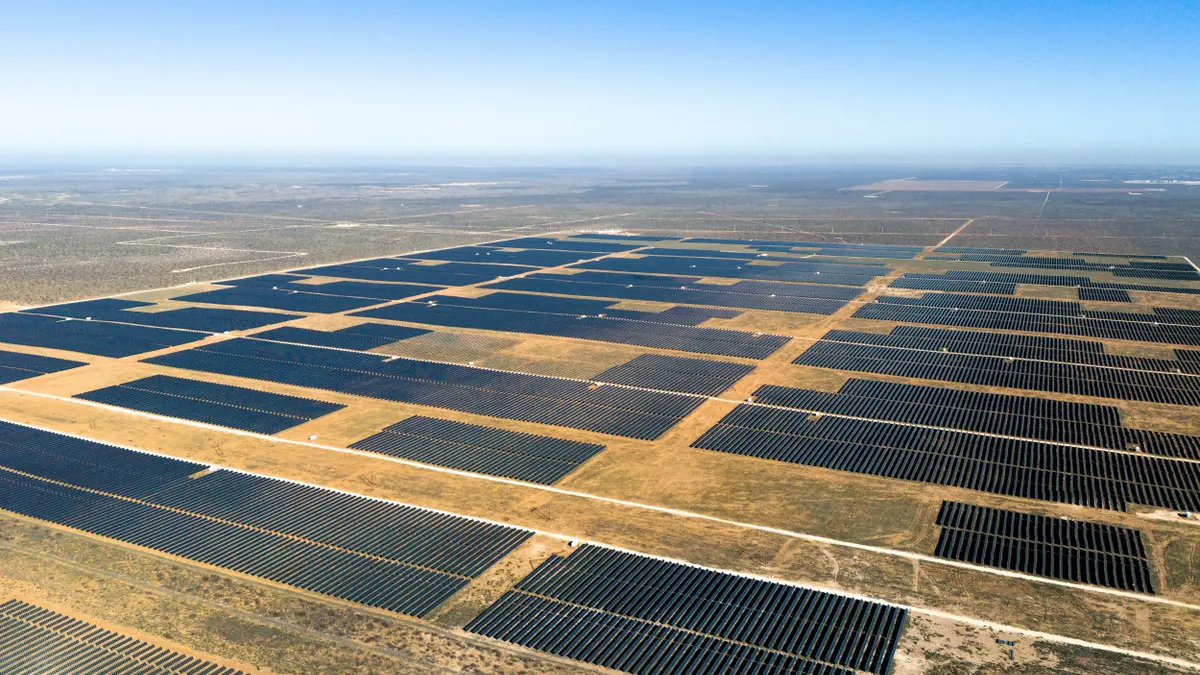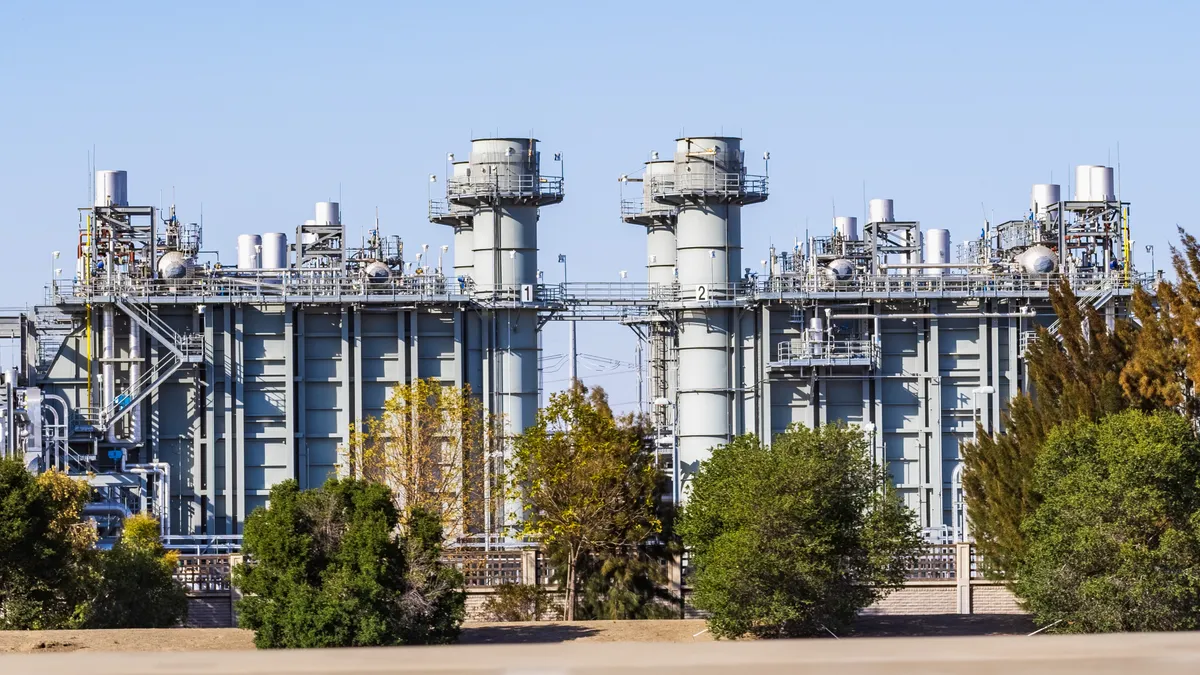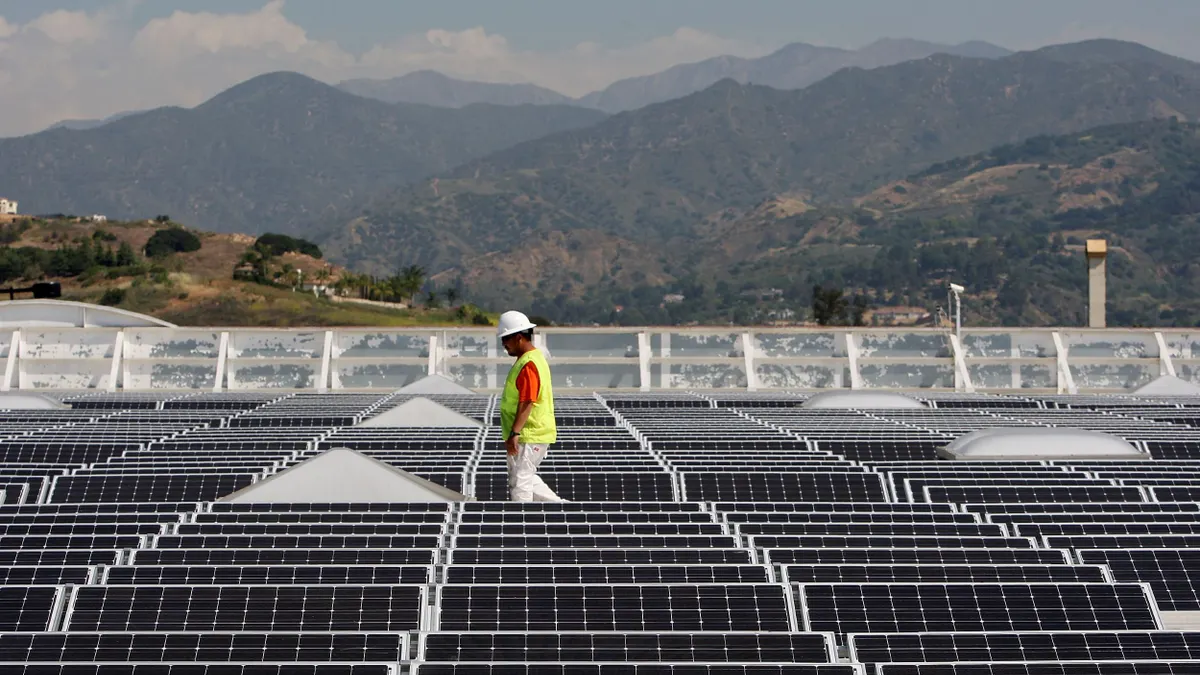The following is a Viewpoint by Vice Admiral Dennis McGinn, U.S. Navy (ret.)
For my entire national security career, in and out of uniform, I have always been concerned about energy.
As a naval aviator and test pilot, I learned to monitor my aircraft's fuel state to make sure I could accomplish the mission and get home. As commander of the U.S. Third Fleet, I had to ensure our ships and aircraft had the fuel they needed working over 50 million square miles of Pacific Ocean. And as Assistant Secretary of the Navy, it was my job to make sure every sailor and marine had access to reliable, affordable energy to complete their missions.
Now, I have a new concern: a Trump administration proposal that would make energy for our nation less secure and would likely cost electric customers and our military billions of dollars. What is especially troubling is that the Administration is using national security to justify its actions.
At issue is a reported plan to invoke the Defense Production Act, a Cold War-era law that was intended to protect strategically vital economic assets. The White House reportedly intends to invoke this law to launch a massive government intervention into energy markets, requiring power companies to buy electricity from uncompetitive coal and nuclear power plants.
I will leave detailed economic and political analysis to others. What worries me is the real damage this plan could do to our national security.
It's important to note that for the military — and the country as a whole — energy security, reliability and resilience is critical. Every homeowner and business across the country worries about the effects of power outages.
Military commanders are no different. In 2016, the Pentagon reported 701 power outages lasting eight hours or longer on military bases. Not only did those outages threaten training, readiness and the mission; they cost the Defense Department $500,000 a day.
Unfortunately, the Trump administration is proposing steps that would do nothing to address the actual problem and could actually make it worse.
The White House wants to prop up nuclear and coal-fired power plants that are simply too expensive to compete. They argue that the power plants they want to bail out are more reliable because they keep fuel supplies on site.
But fuel supplies are not the problem. In 2016, 97 percent of outages affecting military bases were caused by equipment failure or maintenance. A primary reason behind those is what GAO has estimated to be $100 billion in deferred maintenance and repairs on military infrastructure, including energy systems and base electric distribution networks.
The White House's proposed solution would do nothing to solve that backlog. In fact, it could divert crucial resources away from the problem. The focus on power plant fuel stocks also totally misses the mark. According to one study, fuel deficiencies account for less than one-ten thousandth of one percent of all hours U.S. customers are without electricity.
If we really want to keep our bases — and the missions they support — up and running when the grid goes down, we ought to listen to the military and focus on real solutions.
Consider what the Marine Corps Recruit Depot Parris Island is doing. At Parris Island, the Marines have developed a project to expand power generation on the base and use solar energy, battery storage and microgrid technologies to help power mission-critical assets in the event of a grid outage.
Those investments represent critical insurance against power outages interfering with vitally necessary training rotations. The Marine Corps has identified Parris Island as just one step on what they have labeled a "Drive to Resiliency."
So if the goal is improving resilience to support the military mission, bailing out uncompetitive power plants is a wrong turn. And the diversion would come at an enormous cost: While the White House has not disclosed the details of its plans, estimates suggest it would cost many billions of dollars a year.
That money would either come out of the pockets of electricity customers or from the Pentagon budget. Either way, it would waste critical resources that should be used to make our country safer and support our forces. It's a worry our troops and their commanders don't need, and it's a plan I hope Americans will reject.
Vice Admiral Dennis McGinn, U.S. Navy (ret.), a career military aviator, was Commander of the U.S. Third Fleet and is a former Assistant Secretary of the Navy. He's on the board of the Electric Power Research Institute and the Rocky Mountain Institute.





















